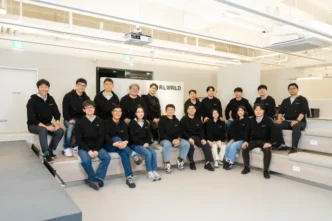Albert Saniger, founder and former CEO of the fintech startup Nate, has been charged with defrauding investors by falsely claiming his AI-powered shopping app was fully automated. The U.S. Department of Justice (DOJ) announced the charges on Wednesday, revealing that the so-called “AI” app was, in fact, largely powered by human contractors in the Philippines.
Backed by major venture capital firms including Coatue and Forerunner Ventures, Nate raised more than $50 million after launching in 2018. The company’s biggest funding round—a $38 million Series A—came in 2021, led by Renegade Partners. At the time, Nate promised users a seamless, one-click checkout experience on any online store, claiming its technology could complete purchases automatically through artificial intelligence.
But according to the DOJ’s indictment, those promises were mostly fiction.
AI Was a Front: Manual Labor Did the Heavy Lifting
Despite public claims of automation, Nate allegedly relied almost entirely on a team of hundreds of human workers based in the Philippines to fulfill transactions manually. While the company had invested in AI infrastructure and hired data scientists, the DOJ said the automation rate was effectively 0%. Transactions were processed manually, except in rare cases where AI might attempt and fail to complete a task.
Saniger told investors that Nate’s core technology could operate without human intervention—except in fringe scenarios. However, internal operations told a different story. This discrepancy became public in 2022 when The Information published a detailed investigation exposing the company’s dependence on human labor.
Startup Burned Through Millions Before Collapse
The indictment further reveals that Nate ran out of funds and was forced to sell off its assets in early 2023, resulting in “near total” losses for its investors. According to Saniger’s LinkedIn profile, he stepped down as CEO that same year. He is now listed as a managing partner at New York-based VC firm Buttercore Partners, which has not commented on the charges. Saniger himself has also remained silent.
Nate Joins Growing List of Fake AI Startups
This case isn’t an isolated incident. In recent years, other startups have also exaggerated their use of artificial intelligence to win over investors and the public. In 2023, The Verge revealed that a company touting AI-powered drive-through software was also secretly using a human workforce in the Philippines to operate its system. And just months ago, Business Insider reported that EvenUp, a legal tech unicorn claiming to use AI to process legal cases, was also heavily reliant on manual labor.
These cases point to a growing trend where companies exploit AI hype to attract funding—often delivering far less than they promise.













